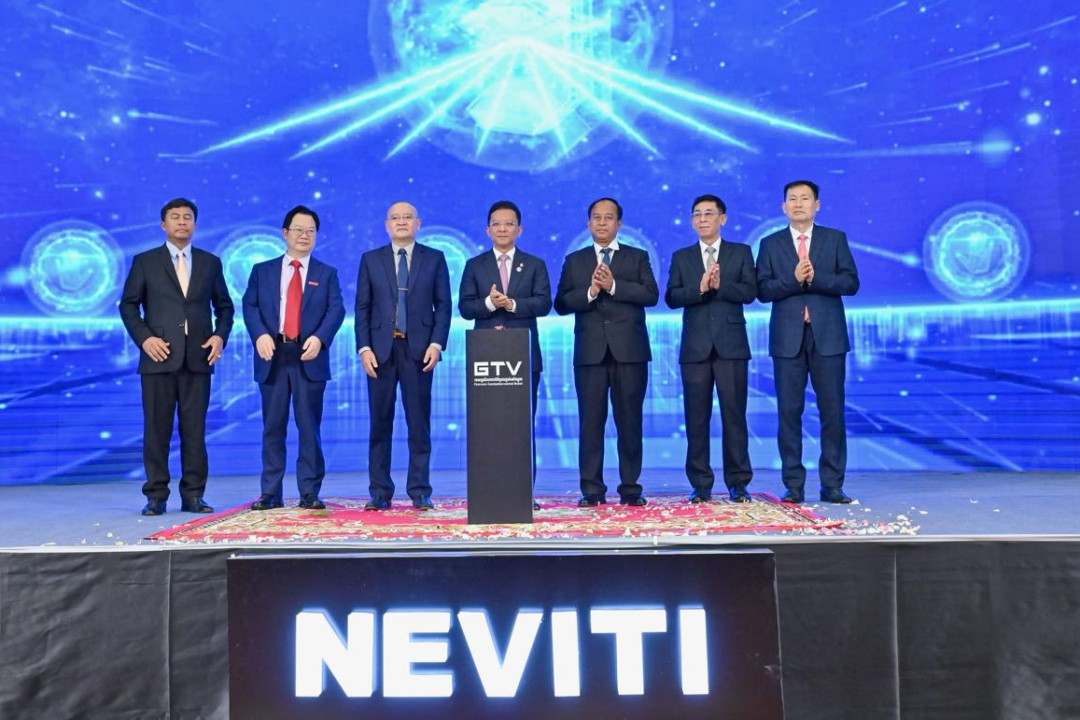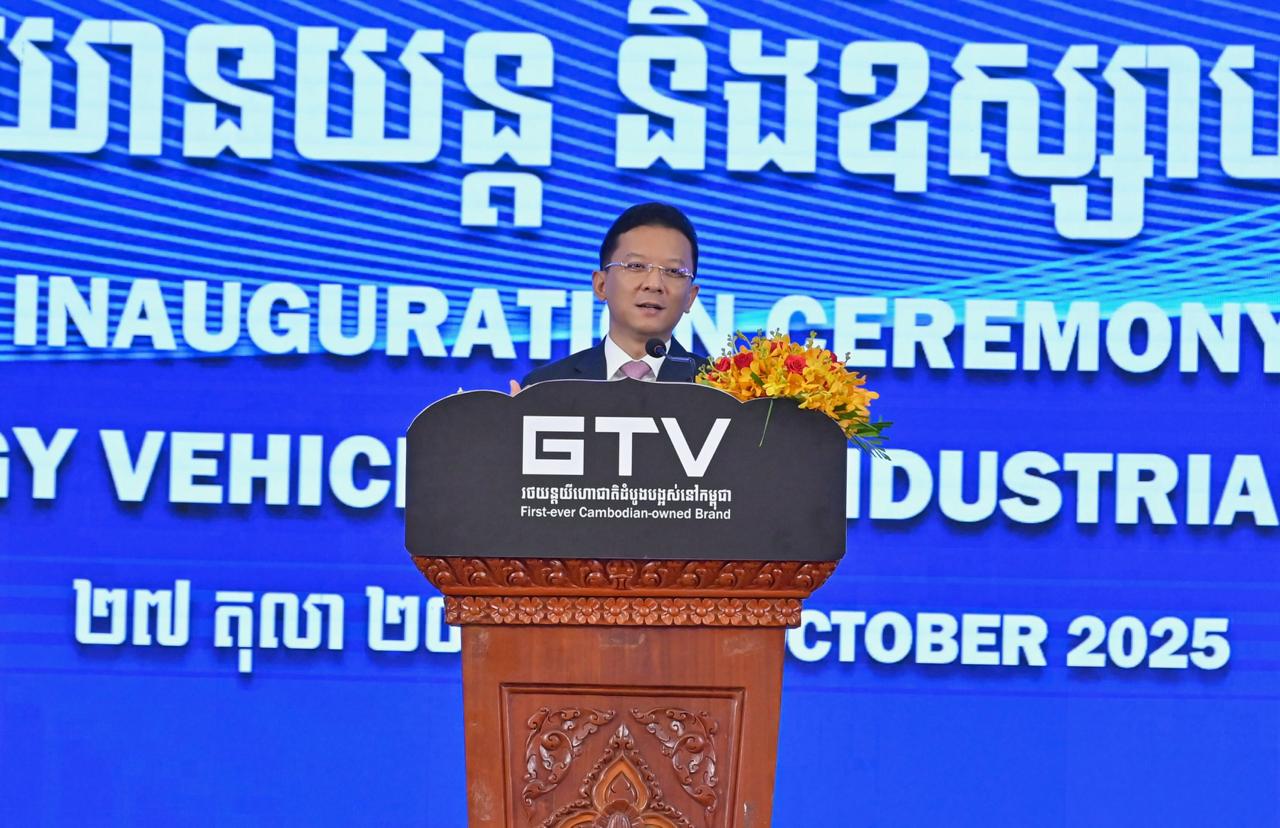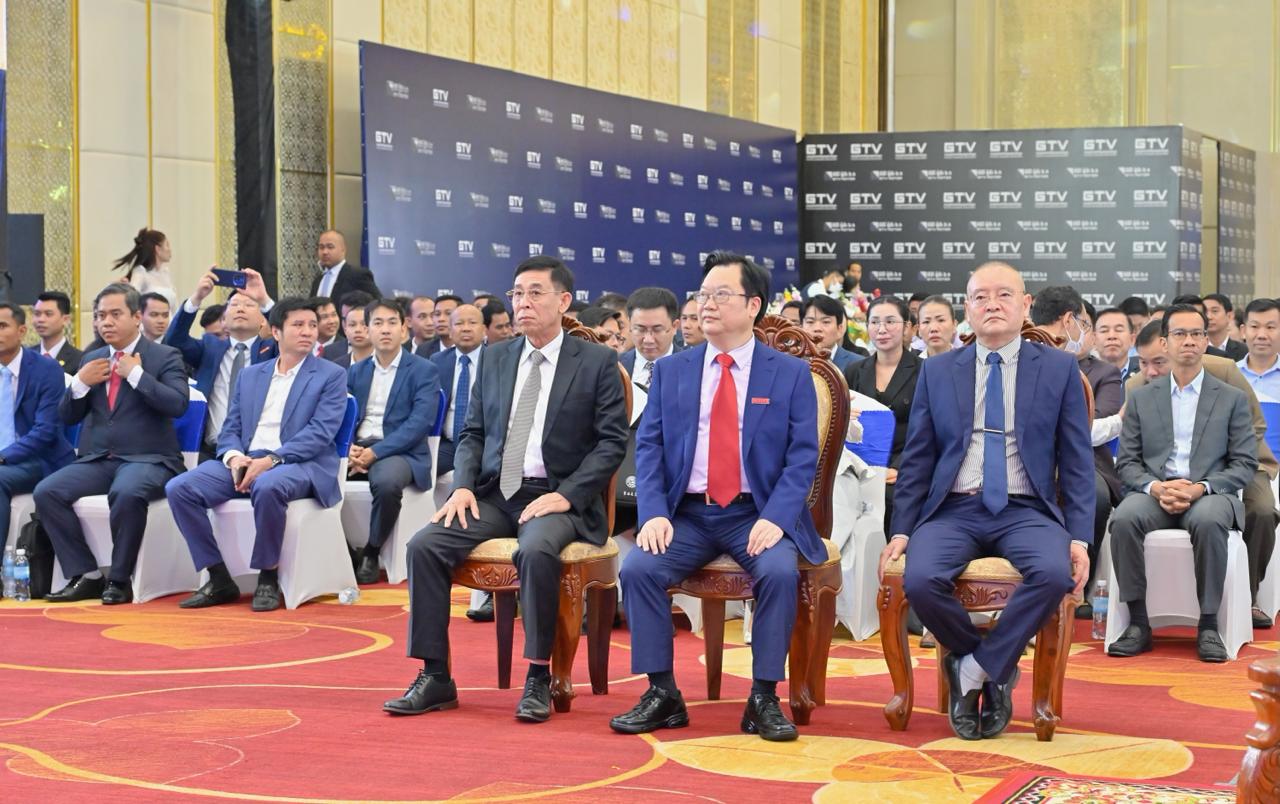NEVITI Inaugurated to Strengthen Skilled Workforce and Drive Low-Carbon Mobility and Industrial Innovation

The Cambodian New Energy Vehicle and Industrial Technology Institute (NEVITI) was officially inaugurated on October 27, 2025, marking a significant milestone in advancing research, technical training, and innovation in electric vehicle (EV) and new energy technologies.
Established through collaboration between Chongqing University of Technology (CQUT), GTV Motor Co., Ltd., and the National Polytechnic Institute of Cambodia (NPIC), NEVITI aims to develop a skilled workforce in electric vehicles, EV engineering, and new energy industrial technology — supporting Cambodia’s transition towards sustainable and high-value manufacturing.
“The establishment of NEVITI will help strengthen the infrastructure supporting the development of Cambodia’s automotive sector and is in line with the National Policy on the Development of Electric Vehicles 2024–2030,” said H.E. Hem Vanndy, Minister of Industry, Science, Technology and Innovation (MISTI). “This institute will contribute to training our workforce for the rapid evolution of electric mobility, which represents a new energy industry in Cambodia.”

The institute builds upon earlier cooperation that enabled Cambodian technical experts and trainers to attend specialised EV technology courses in Chongqing, China. It also contributes to key national frameworks — including the Industrial Development Policy 2015–2025, Cambodia’s Roadmap for the Development of the Automotive and Electronics Sectors, and the Royal Government’s Strategy for Carbon Neutrality.
Minister Vanndy added that the project also contributes to building a Cambodia–China Community with a Shared Future under the Belt and Road Initiative (BRI). It complements the broader Industrial and Economic Corridor Cooperation Programme, supporting Cambodia’s transition towards a more sustainable and technology-driven economy.
Cambodia’s automobile ecosystem has been steadily expanding — now comprising eight automobile assembly plants (including Ford, Hyundai, Toyota, KIA, BYD, Isuzu, SsangYong, and GTV Motor), several motorbike and electric motorbike assembly facilities, and an electric tuk-tuk assembly plant. The ecosystem is further supported by component manufacturing industries, as well as eight car tyre manufacturing plants that serve both domestic and international markets.
Minister Vanndy noted that this expanding base “presents a prime opportunity for Cambodia to link with the global electric vehicle supply chain, which is expected to grow tremendously by 2030.”
He also encouraged NEVITI to collaborate with the Institute of Standards of Cambodia to develop additional national standards for the automotive sector, thereby enhancing the country’s testing and certification capabilities and ensuring the quality, safety, and competitiveness of the industry.
The government has set a target for developing the EV industry by strengthening the supply chain for key components — including vehicle bodies, tyres, batteries, engines, electronic parts and other accessories — while improving supporting infrastructure such as charging stations, skills training, research and development, and incentive mechanisms to promote both investment in and adoption of electric vehicles.
